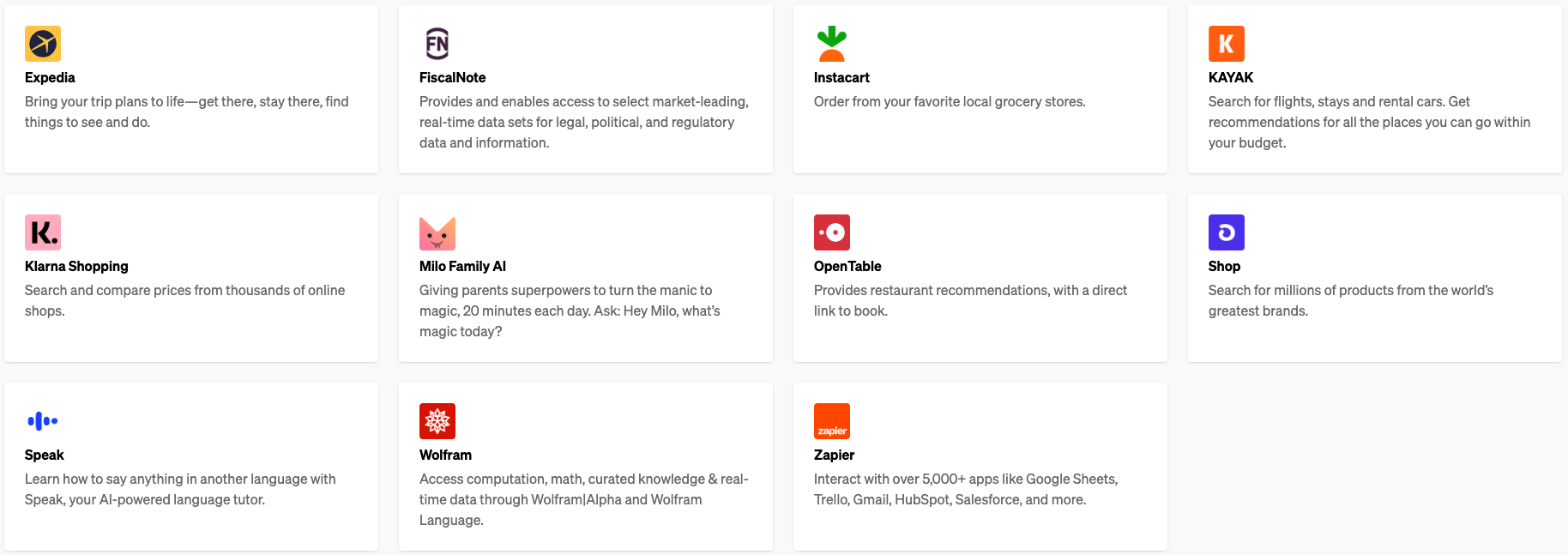The world of generative AI is growing at an alarming rate, with the recent launches of ChatGPT, Bard, and Bing Chat. Just yesterday the world was caught unawares by an image of Pope Francis covered head-to-foot in a Balenciaga kit that, as much as we’d have liked it to be the opposite, was the work of an AI. That’s just one facet of AI: imagery. Video, voice, and text-based AI models are growing just as fast, with OpenAI’s ChatGPT doing most of the heavy lifting in recent headlines.
ChatGPT’s “eyes and ears”
It appears that ChatGPT will continue to do that lifting. On Thursday, OpenAI announced that ChatGPT would be receiving plug-in support, effectively giving it the ability to communicate with the world at large. Need ChatGPT to order a pizza? There’ll be a plug-in for that. Think we’re joking? OpenAI itself mentions the possibility of ordering food using ChatGPT.
Newcomers to the AI game might not understand why this is such a big deal. Usually, LLMs (large language models) are confined to their source code and only their source code. As OpenAI puts it, “the only thing language models can do out-of-the-box is emit text.” Its sources of information are limited to the model’s training, and why it can be so easily swayed by users’ prompts. Hook up a plug-in that allows it to keep its information up to date, and that’ll no longer be an issue.
For now, ChatGPT plug-ins are rather limited. The service is currently in the alpha stages of development, with only a handful of ready-to-go plug-ins on the service. Interested users will need to outlive the waitlist OpenAI currently has going on, with no full release date in sight.
“In line with our iterative deployment philosophy, we are gradually rolling out plugins in ChatGPT so we can study their real-world use, impact, and safety and alignment challenges—all of which we’ll have to get right in order to achieve our mission,” it said.
Plug me in, Scotty

So far, OpenAI has announced these eleven plug-ins (pictured above) as the first developed for the service. That’s not all though. OpenAI is releasing three of its own, each buffing up ChatGPT to a strength we didn’t think was possible a few months ago.
The first is a web browser that’ll let ChatGPT connect to the web and search the most recent information on a topic, like that of Bing Chat’s tech. The second is a code interpreter that can execute Python programs. The third gives the model access to retrieve “personal or organizational” information hosted elsewhere.
Read More: Is ChatGPT really the internet’s search future?
Whether the company has plans to sell these or other plug-ins once they’re available to the public, we couldn’t say. OpenAI refers to a ‘plug-in store’ that users will be able to browse, though it fails to mention whether there’ll be a cost on all, some, or none of the plug-ins.
How the use of plug-ins and the ability for users to build their own will affect the service and the world at large is still unknown. OpenAI casually mentions “plugins will likely have wide-ranging societal implications,” which could mean the loss of jobs and far less internet security. We’ll just have to wait and see.




